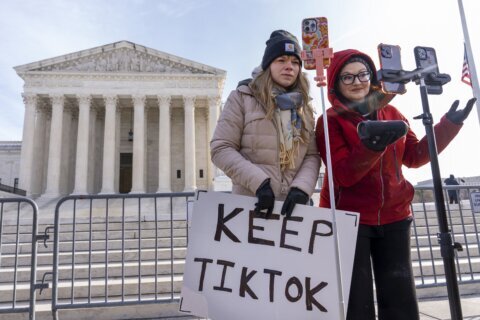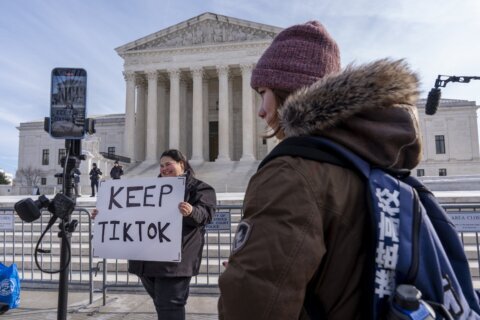When you switch employers, it’s important to keep your nest egg intact. Without careful attention, a variety of taxes and fees could significantly reduce your retirement savings. Be sure to take a close look at 401(k) vesting schedules and waiting periods before making any major career moves.
Here are some common 401(k) mistakes that job hoppers make:
— Leaving before you’re vested
— Not saving during the waiting period
— Saving less when an employer matches less
— Not saving when your employer doesn’t offer a 401(k)
— Cashing out your old 401(k)
— Failing to shop around for the best tax-deferred account
— Making rollover mistakes
Leaving Before You’re Vested
You can always take your 401(k) contributions with you when you leave a job. But you won’t be able to keep your employer’s 401(k) match or profit-sharing contributions unless you are vested in the plan.
Nearly 45% of 401(k) plans provide immediate vesting for matching contributions, according to a survey by the Plan Sponsor Council of America. The rest require you to stay with the employer for a number of years before you can keep any of the matchor allow you to keep a gradually increasing proportion of the match based on your job tenure.
“If you are choosing to leave and you are close to the end of the vesting schedule, you could be leaving money on the table,” says Tom Orecchio, a certified financial planner for Modera Wealth Management in Westwood, New Jersey. Find out when you will become vested in the plan and consider sticking around if the date is relatively close.
[READ: What Retirement Savers Need to Know About the SECURE 2.0 Act in 2025]
Not Saving During the Waiting Period
The majority of companies allow new employees to contribute to their 401(k) immediately upon joining the firm, according to an analysis of about 1,500 retirement accounts administered by Vanguard. Some employers require you to wait between two and three months or even an entire year before you can start saving in the 401(k) plan.
“If you’re not part of the profit-sharing or 401(k) plan, you do have other options such as IRA and Roth IRA accounts,” says Jerry Korabik, a certified financial planner for Savant Capital Management in Rockford, Illinois. Don’t stop building your nest egg just because the company’s official plan is closed to you.
Saving Less When an Employer Matches Less
A 401(k) match is a powerful incentive to save for retirement. However, nearly a quarter of 401(k) participants don’t save enough to max out that match, according to a 2024 Vanguard study, and 13% save exactly enough to get the maximum possible employer contribution. But simply meeting the match threshold may not be enough for a secure retirement.
“Some people only save when they are paid to save, but that shouldn’t be the only reason you are doing it,” says William Cuthbertson, a certified financial planner for Fiscalis Advisory Inc. in San Juan Capistrano, California. “People need to be saving 10% to 15% of their salary, starting at a young age.”
So, if your new employer offers smaller matching contributions, you should make up the difference by saving more on your own.
[READ: What’s the Difference Between a Pension Plan and a 401(k)?]
Not Saving When Your Employer Doesn’t Offer a 401(k)
Unless you job-hop exclusively among large or particularly generous employers, you may eventually find yourself working for a company that doesn’t offer retirement benefits.
Only about two-thirds of private industry workers had access to a defined contribution plan like a 401(k) account in 2023, according to the Bureau of Labor Statistics. If you are among those workers without access to a workplace retirement plan, it’s important to keep saving in an IRA or other account, even in years when you’re not getting any help from your employer.
Cashing Out Your Old 401(k)
About 40% of retirement savers cash out their 401(k) when they leave or change their job, according to the Harvard Business Review.
That can be an expensive mistake. Not only does it mean less money will be available in retirement, but it can also result in a significant tax bill.
Workers who cash out traditional 401(k) accounts must pay income tax on that amount, and if they are younger than 55, typically face a 10% early withdrawal penalty. A worker in the 24% tax bracket with a 401(k) balance of $3,000 would receive just $1,980 after taxes and penalties if they cashed out before retirement.
[READ: How Much a 401(k) Early Withdrawal Costs]
Failing to Shop Around for the Best Tax-Deferred Account
There are several ways to maintain the tax-deferred benefits of your 401(k) when you leave a job. You can leave your money in your former employer’s plan, roll it into an IRA or transfer your balance into your new employer’s 401(k) plan.
“You want to compare the available investment options and the costs of your current and former plan,” Korabik says.
Sometimes 401(k) plan sponsors are able to negotiate low investment fees for participants. But if the 401(k) plans available to you carry high fees, consider shifting your nest egg into an IRA with lower costs and more investment options.
Making Rollover Mistakes
Once you decide to move your money, take care to avoid taxes and penalties. Ask your former employer to directly transfer your savings to the financial institution hosting your IRA or your new employer’s retirement plan. This way, you’ll avoid having income tax withheld. Plus, you don’t have to worry about the 60-day time limit for depositing the entire balance, including the amount withheld, into a new tax-deferred account before additional taxes and penalties may be applied.
However, consider leaving behind any company stock from your former employer, which gets special tax treatment when held in that employer’s 401(k) plan.
If you’re close to retirement, it’s worth noting that retirees can begin taking penalty-free 401(k) withdrawals at age 55, but only from the 401(k) account from the job they just left. Otherwise, they must wait until age 59 1/2 to take IRA withdrawals or 401(k) withdrawals from accounts left with previous employers or face the 10% early withdrawal penalty.
More from U.S. News
What Is the 25x Rule for Retirement Saving?
Can You Retire on $1 Million? Here’s How Far It Will Go
401(k) Mistakes Job Hoppers Make originally appeared on usnews.com
Update 08/23/24: This story was published at an earlier date and has been updated with new information.









